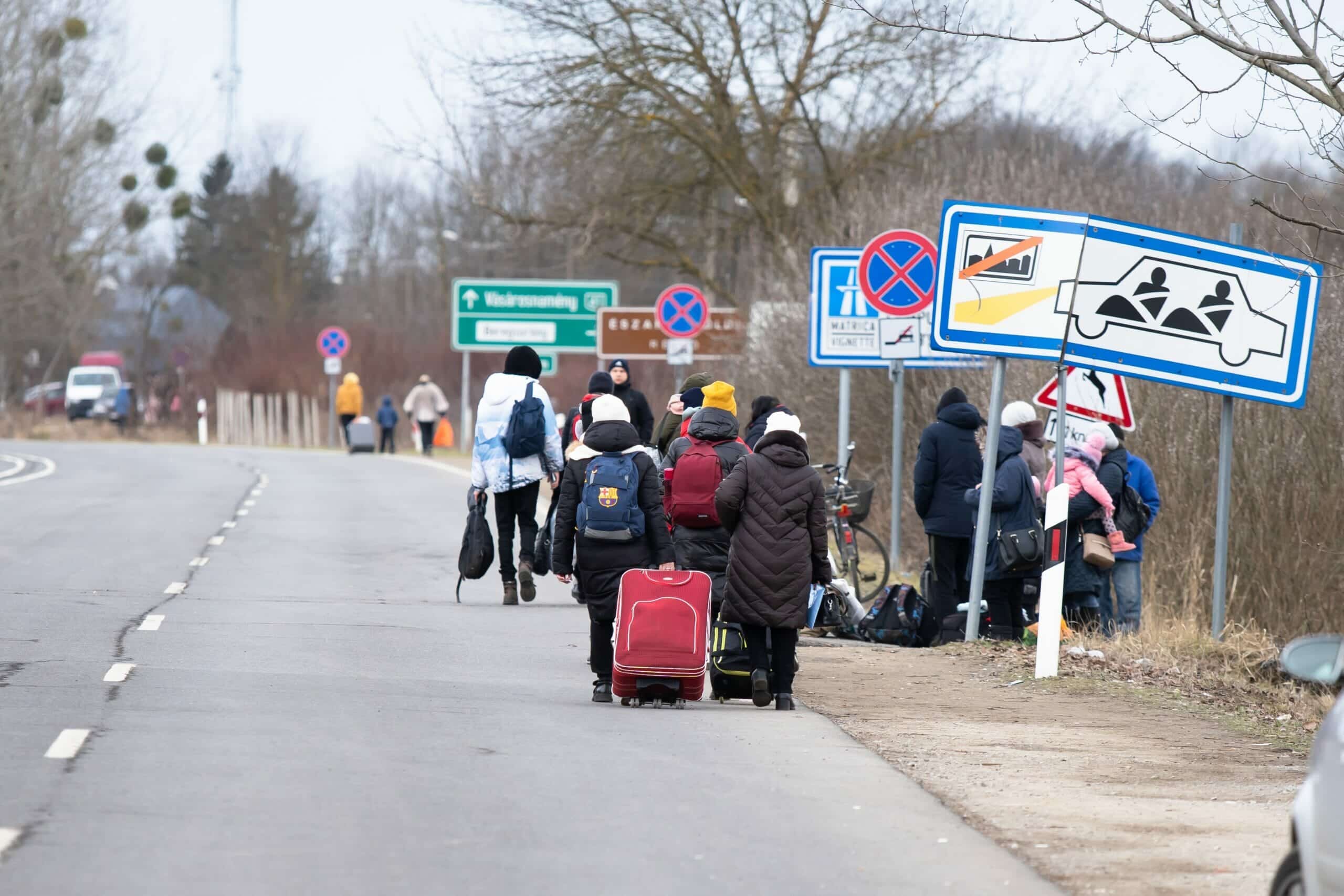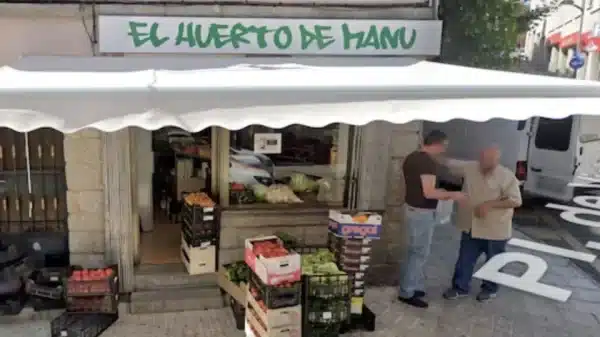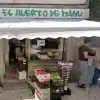With the current situation in Ukraine escalating since Russia’s armed forces invaded the nation, mutliple citizens in Ukraine have rushed to the borders to try and find safety in neighboring countries. However, discrimination against African nationals trying to leave claim they have been repeatedly assaulted, and blocked from crossing, by the Ukrainian police.
The Ukrainian border is currently being packed, day and night, by citizens trying to flee. As of Monday, there is an estimated number of about 500,000 refugees already having fled the country. However, there are tens of thousands left waiting for their turn to cross over into any of the neighbouring countries for safety, mostly either Poland or Romania. Although humanitarian attention and aid have been plentiful towards those attempting to escape Ukraine, discrimination against people of colour has also been reportedly high. Many African students living in Ukraine are reporting that they are being kept and withheld at the border, where police are giving priority to White Ukrainian nationals. Allegations of assault, both physical and verbal, are darkening the situation even further, increasing the desperation for people of colour to seek safety.
There is a large population of African students currently studying in Ukraine considering its relatively low tuition fees for international students compared to other European states. The majority of students come from Ghana, Nigeria, and Cameroon. Nigeria alone has about 4,000 students currently studying across Ukraine. However, the unequal treatment they are facing at the border is making it increasingly difficult for them to return home to safety, causing students to take it into their own hands to provide means of support, communication, and travel.
Jesse Gogoe, a 24-year-old medical student from Ghana that was studying in Ivano-Frankivsk in western Ukraine, claims it was near impossible to find a car for him and his friends to reach the border, 200km away from their university town. They eventually managed to find a driver willing to take them in a 20-seater van for a riding fee of $600 each.
This was far from the end of their endeavours, as Gogoe claims the traffic was impossibly dense, keeping everyone trying to flee paralyzed on the roads. He says, “You could be in the same spot for five hours and not move.”
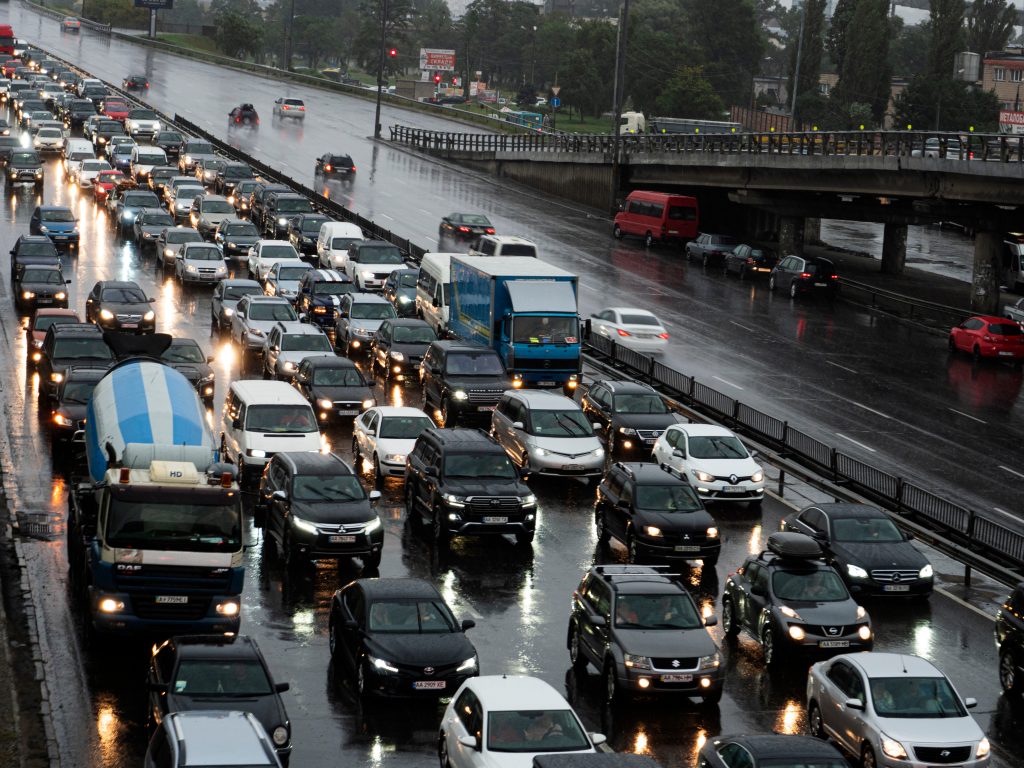
In a haste, they decided to ditch the ride and walk for 12 hours to the border instead, as they gambled that would still be faster than being stuck on the road with everyone else attempting to flee. At the border, however, they were stuck waiting for an additional 15 hours and kept being pushed back as Ukrainian border officials prioritized Ukrainian citizens over foreign nationals. Gogoe claims there was a clear disparity in favouring those who were White over those who were not.
It was only until the crowd became overwhelmingly restless that they collectively pushed through to make it across. Individuals were seen attempting to jump over the barbed wire fences between Ukraine and Poland, pushed by their urgency to get to the other side.
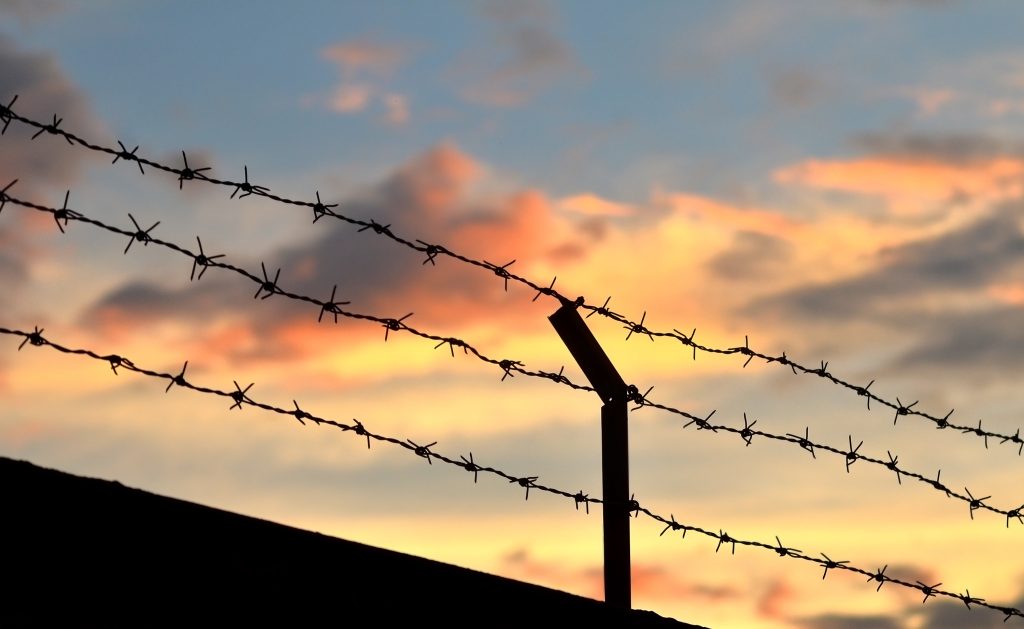
Gogoe shares:
Everyone was tired and civilians started opening gates themselves and rushing in. Due to that, people lost their stuff and others were being suffocated.”
Jesse Gogoe
Gogoe himself lost all his luggage, carrying multiple essential personal valuables.
He claims the situation was “traumatizing” and that he “wouldn’t want anyone to experience such treatment” as he witnessed at the border.
As the Russian offence continues, it is unknown just how many African youths have successfully managed to flee, or are still being held up within the borders. Many claim they have already spent days stranded there, such as Kunda Zimba, a third-year medical student from Zambia.
Zimba lived in Lviv, and with 20 other African students, walked 15km to make it to the Ukrainian town that borders Poland.
Zimba shares, “We were moving by foot because it was impossible to stay in line and wait for a driver to drive people to the border.”
It is becoming evident, that although it has not been many days yet since Russia’s invasion, resources are running scarce.
After attempting to cross at two different border checkpoints, Zimba’s group returned to Lviv realizing they were suffering dire defeats.
I couldn’t walk properly on my own, and I was too cold, we couldn’t stay in the cold any longer; it was like -5 degrees outside, and we had to sleep on the road.
Kunda Zimba
A Nigerian citizen, James Chidiebere, also spoke up about the Ukrainian border officials being particularly aggressive towards him. Chidiebere attempted to jump the fence multiple times, but the border officials kept catching him and pushing him back, being particularly violent.
“They caught me and my hands…they hit me.” Chidiebere has deep cuts on his fingers where he was dragged and hit.
He waited at the border for four days, with little shelter and hydration, before managing to make it across to Poland.
Chidiebere claims, “It was a hell for me”, and he will never forget the way he was treated and handled.
They don’t treat us equally. I think they are racist…When you try to explain yourself they slap you. They don’t treat their citizens that way.
James Chidiebere
A lot of African students are thus taking it into their own hands to provide safe routes for those in Ukraine to flee safely. Owolabi Gbolahan, a post-graduate doctor studying general surgery and former President of the Nigerian Students’ Union in Ivano-Frankivsk, witnessed a Russian airstrike hitting the airport just a few miles from his home in western Ukraine. He then decided to organize a private 100-seater bus to help transport African students to the Ukrainian-Romanian border, but upon arriving, the group was physically assaulted by the Ukrainian immigration officers.
“They are literally telling foreigners to kneel just to cross the border in a time of war,” Gbolahan speaks of the absurdity of the situation.
A 30-year-old Nigerian business owner, Tolulope Osho, also took it upon himself to provide safe spaces for Africans trying to flee. Osho converted his office in the Western city of Ternopil into a shelter hosting around a hundred Africans to stay in as they make their way to the nearby Polish-Ukrainian border checkpoint.
“I can’t count the number of people I’ve assisted…There are lots of people in my DMs, and I can’t count them. For now, we are taking people in, those that just came from the war zone – they come here to me – a border town to access neighbouring countries like Hungary,” Osho says.
The official African Union also released a statement, condemning the unequal treatment that is becoming increasingly evident. The statement says that they are “following closely the developments in Ukraine and are particularly disturbed by reports that African citizens on the Ukrainian side of the border are being refused the right to cross the border to safety.”
The statement reiterates that it is a human right to be safe and cross international borders during times of conflict and war, regardless of one’s ethnicity or nationality.
The statement continues, “Reports that Africans are singled out for unacceptable dissimilar treatment would be shockingly racist and in breach (of) international law.”
Individuals are also taking to social media to make sure that these reports of abuse are being documented and shared. One student took to Twitter, going by the name Nze, claiming that authorities denied him entry to cross the border, even after waiting for days. Nze claims he was threatened by Ukrainian soldiers with guns, until they eventually managed to push through them to get across. Nze is now safe in Warsaw, Poland.
Another student that goes by Koko on Twitter also shared her experience of waiting for almost 24 hours to make it across to Romania. She claims that some Ukrainian locals actually threatened her group, claiming they did not deserve to cross. She claims that the situation in Ukraine is also being reflected in Poland and Romania.
African ambassadors are also taking it unto themselves to assist as much as they can to their nationals stuck at the Ukrainian border. Nigeria’s Minister of Foreign Affairs, Geoffrey Onyeama, shares, “It’s official: no restrictions for foreign nationals to leave the country, exist. Problem is the result of chaos on the border and checkpoints leading to them.”
The Ghanian government has also directly evacuated around 460 Ghanians from Ukraine through Poland, Hungary, Romania, Slovakia, and the Czech Republic. A Ghana-based journalist, Jonas Nyabor, claims, “The coordination from Ghana has been very impressive based on the fact that the diplomats were very responsive and the consul and student leaders were very cooperative.”
Nyabor adds, “In fact, we had a lot of cases of Ghanaians living in the border countries also assisting in the efforts.”
Social media and WhatsApp group chats are extremely active and document all that is going on to keep others aware of what they may face once they finally do manage to reach the border. Emmanuel Afriyie, a Ghanian engineering student, fled on the 15th of February pre-emptively fearing the Russian threats of invasion. Since fleeing Ukraine, Afriyie has been an active source of information for others still there. He claims many are trying to flee to safer countries so they can get return flights to their national countries. However, most flights are booked and many are having to wait several days to find any availability to fly home.
Afriyie says, “As we speak tickets are going up every second because everyone is trying to book a ticket.”
The whole world is praying for Ukraine and it’s appalling that Ukrainian soldiers are doing this at the border. If you can’t get lots of people through the border at once, we get that. If there is a queue, sure. But the treatment is unacceptable.
Emmanuel Afriyie
As the Russian attacks in Ukraine proceed, the situation at the border will only become increasingly chaotic and intense. The resources and safety afforded to those trying to reach safety is becoming more scarce, but regardless, the disparaging reality of the unequal treatment people of colour are experiencing at the border is abominable. Every human deserves safety on equal counts, and the threat of war is valid for all those residing in Ukraine, regardless of ethnicity or nationality.
Keep up to date with more updates on the Ukrainian situation, such as the new IT Army Ukraine curated to ‘hack’ Russia.


